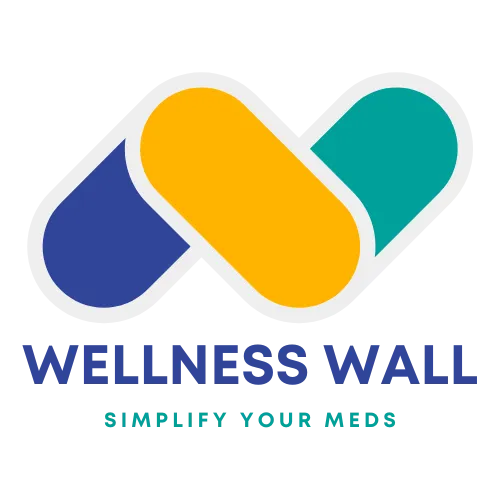
Read Our Blogs

The Importance of Nutrition for Immune Health in Seniors
As we navigate the journey of aging, our bodies undergo a series of natural transformations. One of the most significant changes is a gradual weakening of the immune system, our body's intricate defense network that safeguards us against infections, diseases, and other health challenges. This natural decline in immune function can make seniors more susceptible to illness and can slow down recovery times. However, while aging is inevitable, a weakened immune system is not. By understanding the factors that influence immune health and adopting proactive strategies, seniors can bolster their body's defenses, enhance their resilience, and maintain their vitality well into their golden years.
One of the most powerful tools in our arsenal for supporting immune health is nutrition. The food we consume provides the building blocks for a robust immune response, fueling the body's ability to fight off infections and maintain optimal health. By prioritizing a nutrient-rich diet and adopting healthy dietary habits, seniors can fortify their immune system, reduce their risk of illness, and enjoy a vibrant and fulfilling life.
The Immune System: Our Body's Fortress of Defense
The immune system is a complex and dynamic network of cells, tissues, and organs that work tirelessly to protect the body from harmful invaders, such as bacteria, viruses, fungi, and parasites. This intricate defense system operates on multiple levels, employing a variety of strategies to identify, neutralize, and eliminate threats to our health.
Innate Immunity: This is the body's first line of defense, a rapid and non-specific response to pathogens. It includes physical barriers, such as the skin and mucous membranes, as well as cellular defenses, such as macrophages and natural killer cells, which engulf and destroy invaders.
Adaptive Immunity: This is a more specialized and targeted immune response that develops over time as the body encounters different pathogens. It involves the production of antibodies, specialized proteins that recognize and neutralize specific pathogens, and the activation of T cells, which directly attack infected cells.
The Impact of Aging on the Immune System: Understanding the Challenges
As we age, several factors contribute to a gradual decline in immune function:
Decreased Immune Cell Production: The production of immune cells, such as T cells and B cells, declines with age, making it harder for the body to mount a robust immune response.
Reduced Immune Cell Function: The function of existing immune cells may also decline, making them less effective at recognizing and destroying pathogens.
Increased Inflammation: Chronic inflammation, a natural part of the aging process, can further impair immune function and increase susceptibility to illness.
Changes in the Gut Microbiome: The composition of the gut microbiome, the community of bacteria that reside in our digestive tract, can change with age, potentially affecting immune function and overall health.
Essential Nutrients for Immune Health: Building Blocks of Defense
To function optimally, the immune system requires a steady supply of essential nutrients. These nutrients act as building blocks for immune cells, support immune responses, and protect against oxidative stress, which can damage cells and contribute to aging and disease.
1. Vitamin C: The Antioxidant Powerhouse
Vitamin C, a potent antioxidant, plays a crucial role in protecting cells from damage caused by free radicals, harmful molecules that can contribute to aging and disease. It also supports various immune functions, including the production of white blood cells, which are essential for fighting off infections. Excellent sources of vitamin C include citrus fruits (oranges, grapefruits, lemons), berries (strawberries, blueberries, raspberries), leafy green vegetables (spinach, kale, collard greens), and bell peppers.
2. Vitamin D: The Sunshine Vitamin for Immune Regulation
Vitamin D, often referred to as the "sunshine vitamin," is crucial for immune health, helping to regulate immune responses and protect against infections. It supports the production of antimicrobial peptides, natural antibiotics that help fight off bacteria and viruses. Good sources of vitamin D include fatty fish (salmon, tuna, mackerel), eggs, and fortified foods like milk and cereal.
3. Zinc: The Essential Mineral for Immune Cell Development
Zinc is an essential mineral that plays a vital role in immune cell development and function. It supports the growth and activity of various immune cells, including T cells and natural killer cells, which play a crucial role in recognizing and destroying infected cells. Good sources of zinc include lean meats, poultry, beans, nuts, and whole grains.
4. Selenium: The Antioxidant Defender
Selenium, a trace mineral with potent antioxidant properties, plays a role in immune function and protects against oxidative stress. It supports the production of antibodies, proteins that help neutralize harmful pathogens. Good sources of selenium include Brazil nuts, tuna, halibut, sardines, eggs, and whole grains.
5. Probiotics: The Gut Guardians
Probiotics, beneficial bacteria that reside in our gut, play a crucial role in supporting gut health, which is closely linked to immune function. A healthy gut microbiome helps regulate immune responses and protects against inflammation. Good sources of probiotics include yogurt, kefir, sauerkraut, kimchi, and other fermented foods.
Dietary Habits for Immune Health: Nourishing the Body's Defenses
In addition to specific nutrients, adopting healthy dietary habits can further strengthen the immune system and promote overall well-being.
Eat a Balanced Diet: A healthy diet rich in fruits, vegetables, whole grains, lean protein, and healthy fats provides your body with a wide range of nutrients essential for supporting immune function. Aim for a colorful plate filled with a variety of fruits and vegetables to ensure you're getting a diverse array of vitamins, minerals, and antioxidants.
Limit Processed Foods: Processed foods are often high in sugar, unhealthy fats, and artificial ingredients, which can weaken the immune system and contribute to inflammation. Prioritize whole, unprocessed foods whenever possible to nourish your body and support your immune system.
Stay Hydrated: Dehydration can impair immune function, making it harder for your body to fight off infections. Make sure you're drinking enough water throughout the day, especially during hot weather or after exercise.
Limit Alcohol: Excessive alcohol consumption can weaken the immune system and increase your susceptibility to illness. Moderation is key when it comes to alcohol consumption.
Get Enough Sleep: Sleep deprivation can also impair immune function, making it harder for your body to fight off infections and recover from illness. Aim for 7-8 hours of quality sleep each night to support your immune system and overall health.
Manage Stress: Chronic stress can suppress immune function, making you more vulnerable to illness. Practice stress management techniques, such as meditation, deep breathing exercises, yoga, or spending time in nature, to reduce stress and support your immune system.
The Wellness Wall: An Indirect Ally in Supporting Immune Health
While the Wellness Wall's primary function lies in medication management, it can indirectly support immune health by simplifying medication routines and reducing stress. This can free up mental space and energy for focusing on healthy habits that support your immune system.
Minimizing Immune-Suppressing Side Effects: Certain medications can have side effects that suppress the immune system, making you more vulnerable to infections. By ensuring accurate and timely medication intake, the Wellness Wall helps minimize the risk of these side effects, supporting optimal immune function.
Reducing Stress, Enhancing Immune Response: Stress can significantly impair immune function, making it harder for your body to fight off infections. By reducing the stress associated with medication management, the Wellness Wall contributes to a more relaxed and balanced state, supporting a healthy immune response.
Fueling the Fortress: A Path to Immune Resilience in the Golden Years
Prioritizing nutrition and adopting healthy dietary habits are crucial steps towards strengthening the immune system and maintaining health and vitality in our senior years. By nourishing our bodies with the right nutrients, limiting processed foods, staying hydrated, moderating alcohol consumption, getting enough sleep, managing stress effectively, and utilizing tools like the Wellness Wall to support overall well-being, we can fortify our immune defenses and embrace the golden years with resilience and vitality.

Reliable, professional pressure washing services for pristine results.
Copyright Wellness Wall 2025. All rights reserved
